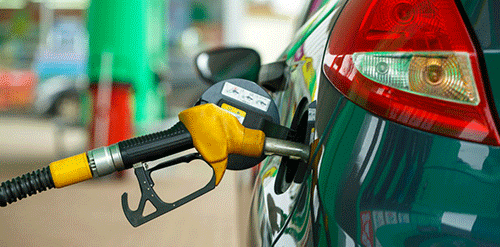The mines and energy ministry has stated it is quite concerned about the local fuel wholesale and retail markets, which it noted to be highly saturated with licences. This state of affairs, a ministry spokesman said, has created problems that ultimately contribute to high fuel prices in the country.
As part of its quest to explore all alternative options in providing some relief to customers from sky rocking and prohibitive domestic fuel prices, the ministry last Thursday announced the temporary suspension on the issuing of downstream petroleum licenses.
The announcement is effective on Thursday, 25 August 2022. According to ministry spokesperson Andreas Simon, the ministry will not accept any applications for new fuel retail sites or wholesale licenses nationwide until further notice.
The ministry will, however, make exceptions for applications for fuel consumer installation certificates and any other license amendments.
According to Simon, the ministry’s mandate is to ensure fuel wholesalers, and retailers are licensed to ensure security of fuel supply as well as an orderly supply of petroleum products into Namibia.
Consumers have been battling with high fuel prices adding to massive increases in food prices that lead to less disposable income and ultimately more expensive bank loans as interest rates increase.
Meanwhile, fuel prices for August 2022 remained unchanged; thus, the petrol price stays at N$22.28 cents per litre and diesel price at N$22.77 cents per litre at the point of entry in Walvis Bay.
The ministry last month stated it resolved to address the burning issue concerning fuel retailers by increasing their Dealer Margin by 50 cents per litre from 113 cents per litre to 163 cents per litre. These changes became effective as from 3 August 2022.
Furthermore, Cabinet recently approved the extension of the temporary reduction of fuel levies, with the exception of the Fuel Tax, until such a time that fuel prices start to significantly return to affordable levels.
The decision emanated from a Cabinet meeting on 9 August 2022 where it was decided 50% reduced levies would continue for the National Petroleum Corporation of Namibia (NAMCOR), Motor Vehicle Accident Fund (MVA) and Road Fund Administration (RFA).
The same Cabinet meeting also approved the discontinuation of temporary reduction of fuel levy by 45 cents on all products and took note of the various long-term fuel procurement strategies being explored to mitigate the unsustainable situation and stabilise domestic fuel prices.
Earlier this year, in a bid to stave off fast rising fuel prices, Cabinet approved the mines and energy ministry’s recommendation to temporarily reduce fuel levies for three months (May to July 2022) by 50%.
Fuel levies and taxes make up 34% to 45% of the cost of Namibian fuel per litre.
Specific levies imposed on Namibian petrol and diesel prices include a customs and excise duty for the SACU Revenue Pool; National Energy Fund Fuel Levy (comprised of the fuel equalisation levy, Namcor levy and National Oil Storage Facility levy); road user charges, which go to Road Fund Administration (RFA) for road maintenance; fuel tax, which is collected by the Ministry of Finance for the State Revenue Fund, and the Motor Vehicle Accident (MVA) Fund levy, which is used to finance the activities of MVA, such as providing financial assistance to road accident victims.
Levies that were temporarily reduced include the road user charges (from 148 to 74 cents per litre), the fuel levy (from 90 to 45 cents per litre), the NAMCOR levy (from 7.6 to 3.8 cents per litre) and the MVA levy by 25% (from 50.3 to 37.725 cents per litre).
– mndjavera@nepc.com.na



